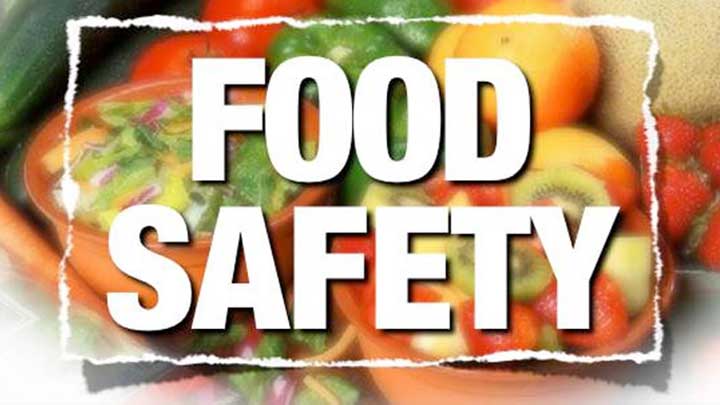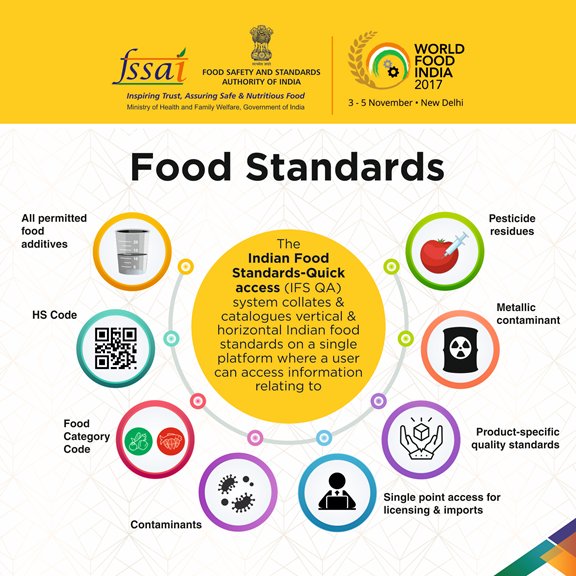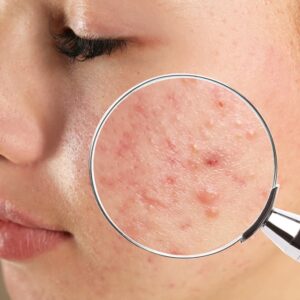The Food Safety and Standards Act, 2006 (FSS Act) is a comprehensive law enacted in India to regulate food safety, ensuring that food products meet scientific safety standards to protect consumer health. The Act replaces multiple food laws and brings all food-related regulations under a single authority—Food Safety and Standards Authority of India (FSSAI).
Key Features of the FSS Act, 2006
1. Establishment of FSSAI
- The Food Safety and Standards Authority of India (FSSAI) was set up under this Act to regulate food safety.
- It sets standards for manufacturing, storage, distribution, sale, and import of food.
- Example: FSSAI has set the limit for artificial sweeteners like aspartame in soft drinks to ensure safety.
2. Consolidation of Previous Food Laws
- Before 2006, food regulation was governed by multiple laws such as:
- Prevention of Food Adulteration Act, 1954
- Fruit Products Order, 1955
- Meat Food Products Order, 1973
- Milk and Milk Products Order, 1992
- The FSS Act replaces these and provides a uniform framework.
- Example: Earlier, milk quality was checked under Milk and Milk Products Order, 1992, but now FSSAI regulates all dairy products.

3. Licensing and Registration of Food Businesses
- Every food business operator (FBO) must obtain a license or registration from FSSAI.
- It applies to restaurants, manufacturers, retailers, storage units, transporters, and importers.
- Types of licenses:
- FSSAI Registration – For small businesses (Annual turnover < ₹12 lakh)
- State License – For medium-scale businesses (₹12 lakh–₹20 crore turnover)
- Central License – For large businesses (Turnover > ₹20 crore, export/import involved)
- Example: A street food vendor needs basic registration, while a large food processing unit like Nestlé requires a Central License.
4. Food Safety Standards and Regulations
- FSSAI defines standards for:
- Edible oils, milk, dairy, meat, grains, beverages, etc.
- Food additives, preservatives, artificial sweeteners
- Packaging and labeling regulations
- Example: Packaged drinking water must meet IS 14543 standards under FSSAI.
5. Prohibition on Food Adulteration
- Strict prohibition on selling adulterated, unsafe, or misbranded food.
- Food should not contain harmful pesticides, toxic chemicals, or non-permitted additives.
- Penalty for Adulteration:
- Substandard food – ₹5 lakh fine
- Misbranded food – ₹3 lakh fine
- Containing toxic substances – ₹10 lakh fine or life imprisonment (in extreme cases)
- Example: Selling milk mixed with detergent is an offense under this Act.
6. Food Recall and Consumer Protection
- If food is found to be unsafe, FSSAI can issue recalls to remove it from the market.
- Consumers can report food safety violations through the FSSAI Complaint Portal.
- Example: Nestlé’s Maggi noodles were recalled in 2015 due to excess lead content.
7. Role of Food Safety Officers (FSO) and Authorities
- FSOs conduct inspections, take samples, and ensure compliance with FSSAI regulations.
- If violations occur, they can issue:
- Improvement notices
- Suspension/cancellation of licenses
- Penalties or legal action
- Example: A bakery selling expired cakes may face a fine or license suspension.

8. Penalties and Offenses
| Offense | Penalty |
|---|---|
| Selling substandard food | Up to ₹5 lakh fine |
| Misbranded food products | Up to ₹3 lakh fine |
| Containing toxic substances | Up to ₹10 lakh fine |
| Death due to unsafe food | Life imprisonment + ₹10 lakh fine |
| Failure to comply with FSO orders | ₹2 lakh fine |
- Example: A soft drink company adding excessive caffeine beyond FSSAI limits can be fined ₹10 lakh.
FSSAI Organizational Structure
- Standards: Set food quality and safety guidelines
- Licensing: Issues food business licenses
- Surveillance: Conducts sample testing and quality checks
- Enforcement: Ensures compliance and penalizes violators
- Consumer Protection: Addresses complaints and recalls unsafe food
Short Summary
- FSS Act, 2006 ensures food safety and replaces old food laws.
- FSSAI regulates all food businesses in India.
- Licensing is mandatory for manufacturers, retailers, restaurants, and importers.
- Strict penalties for food adulteration and misbranding.
- Consumers can report unsafe food, and FSSAI can recall products.
Example Cases
- Nestlé Maggi Ban (2015) – Maggi noodles were banned due to excessive lead content.
- Synthetic Milk Seizure – FSSAI raided a dairy that mixed detergent with milk.
- McDonald’s Fine (2019) – McDonald’s India was fined for improper food labeling.

References
- FSSAI Official Website – https://www.fssai.gov.in
- Food Safety and Standards Act, 2006 – https://legislative.gov.in
- Ministry of Health and Family Welfare – https://main.mohfw.gov.in
- WHO Food Safety Guidelines – https://www.who.int/foodsafety
- Consumer Protection Reports (FSSAI & Legal Cases) – Various sources including court rulings and FSSAI reports.
Our Other articles
100+ AYURVEDIC DRUGS ACCORDING TO BAMS NCISM SYLLABUS
Pharmacological Insights into Charakokta Dashemani: Part -1 (01 – 20 Dashemani Mahakashaya)
Pharmacological Insights into Charakokta Dashemani: Part -2 (11- 20 Dashemani Mahakashaya)
Pharmacological Insights into Charakokta Dashemani: Part -3 (21 – 30 Dashemani Mahakashaya)
Pharmacological Insights into Charakokta Dashemani: Part -4 (31- 40 Dashemani Mahakashaya)
Pharmacological Insights into Charakokta Dashemani: Part -5 (41- 50 Dashemani Mahakashaya)








I’m truly enjoying the design and layout of your website.
It’s a very easy on the eyes which makes it much more enjoyable for me to come here and visit more often. Did you hire out a designer to create your theme?
Great work!
The style of massage at 인천여성전용마사지 was exactly what I needed.
After visiting 강남여성전용마사지, I left feeling not only physically renewed but
also emotionally supported in the most comforting
way.
What I found at 부산여성전용마사지 was
not just relief, but gentle renewal.
마사지를 받는 내내 편안함이 가득했고,
강남토닥이의 여성전용마사지는
정말 최고였어요.
여성의 감성을 섬세하게 이해하는 수원여성전용마사지에서 저는 진짜 ‘쉼’을 느꼈습니다.
삶의 번잡함을 잠시 멈추고 싶다면 여성전용 마사지가 정답이에요.
One visit to 토닥이 and I’m
already planning the next one.
I’m amazed, I must say. Rarely do I encounter a blog that’s equally educative
and engaging, and without a doubt, you have hit the nail on the head.
The problem is an issue that too few men and
women are speaking intelligently about. I’m very happy that I found this
during my hunt for something regarding this.
Nice blog! Is your theme custom made or did you download it from somewhere?
A theme like yours with a few simple tweeks would
really make my blog shine. Please let me know where you got your design. Many thanks
Also visit my webpage: www y2mate
Pingback: The Real Causes of Acne Vulgaris: Science-Backed Explanation -
Pingback: Acne Vulgaris: Integrative Ayurvedic and Modern Therapeutic Protocols -
Pingback: Acne Vulgaris: Diagnostic Aspects and Clinical Assessment – An Integrative Ayurvedic and Modern Perspective -